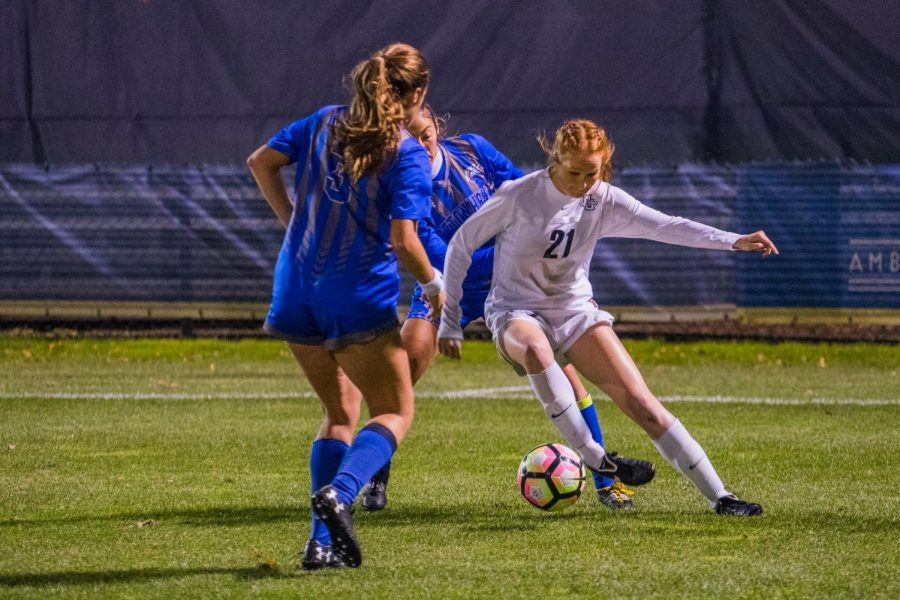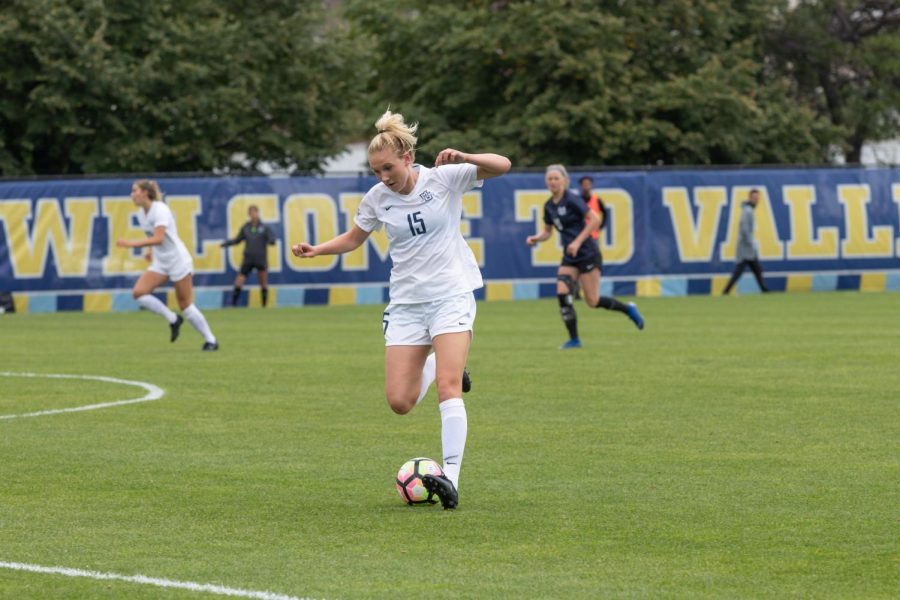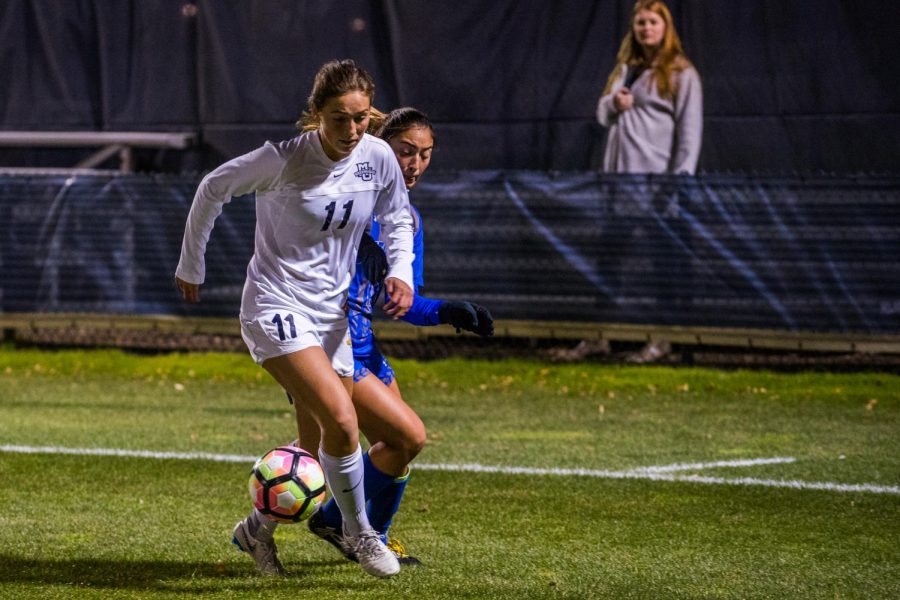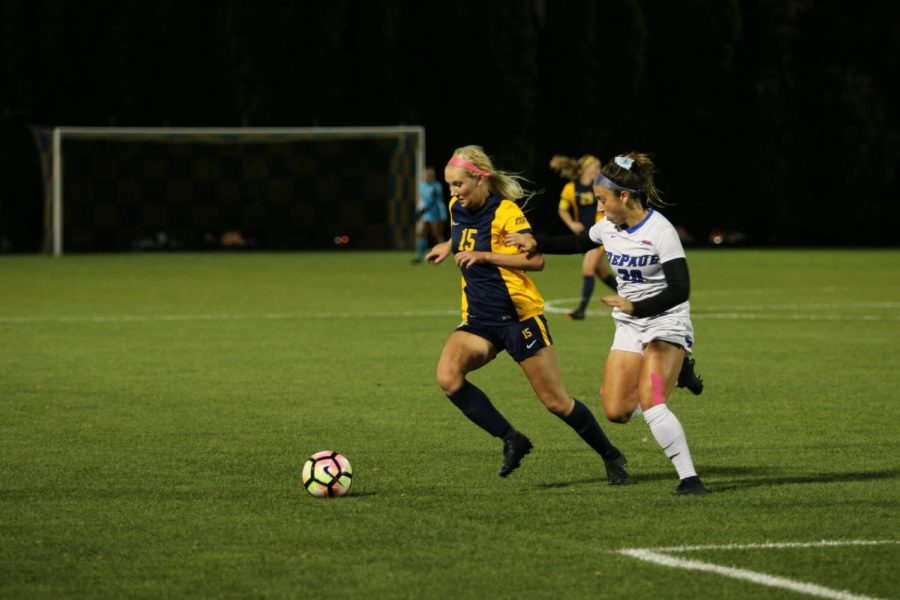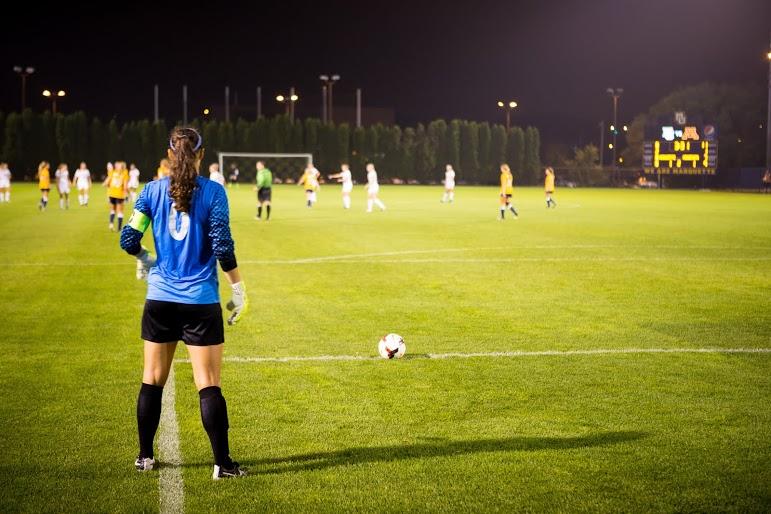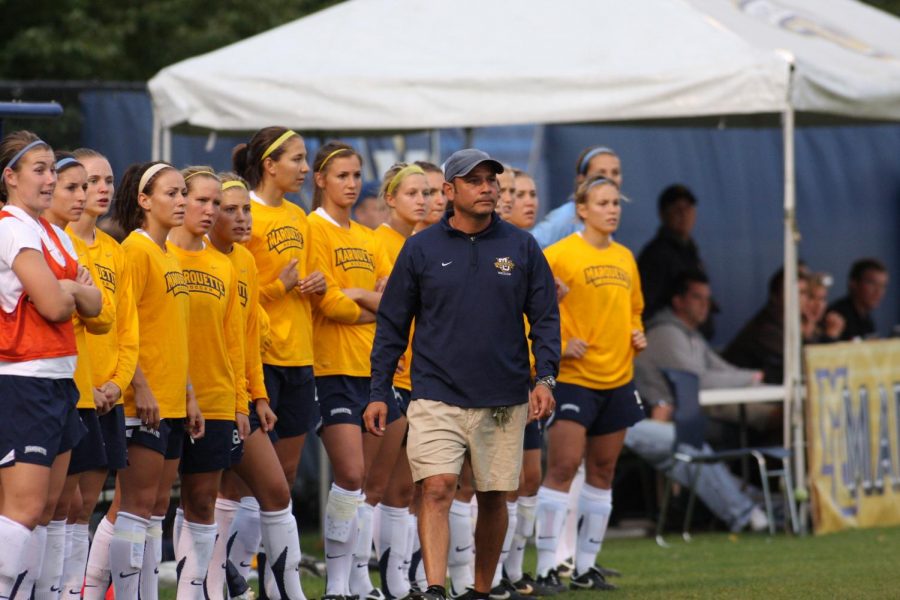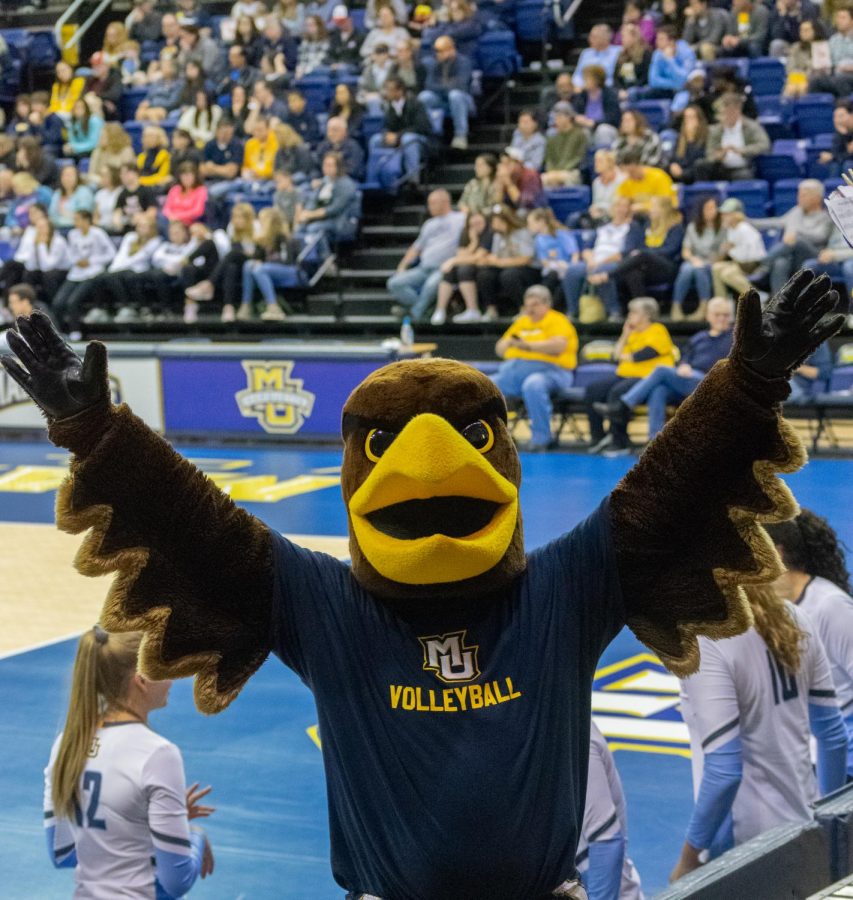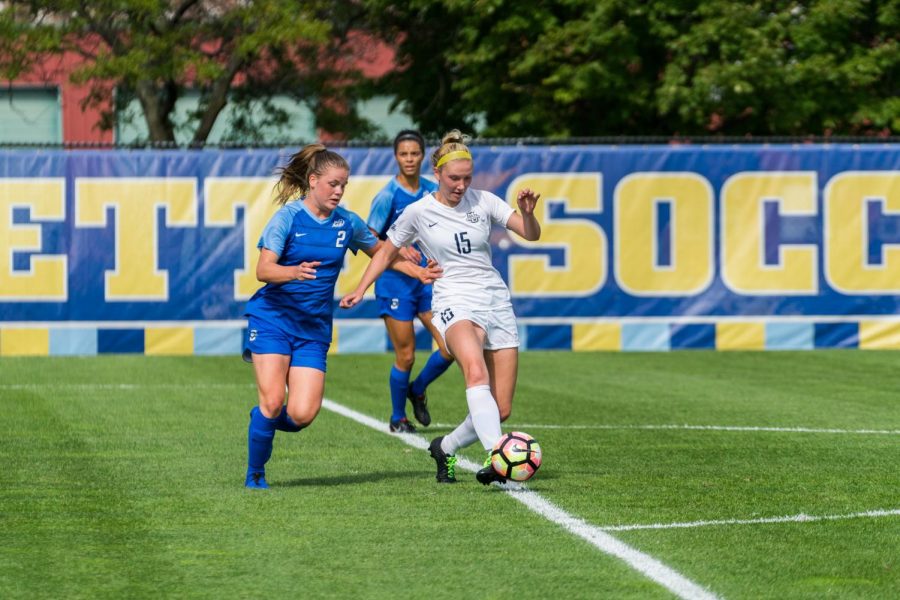Minutes after Carrie Madden entered her final match Thursday against Seton Hall in the second half, it looked like she scored the goal she had waited for over the past two months.
“I honestly thought it was going in,” Madden said.
Instead, the shot ricocheted off Seton Hall goalkeeper Jackie Robinson’s fingertips and hit the crossbar, forcing the ball back into play. Madden breathed a deep sigh of frustration.
Her near-miss is a microcosm of something much bigger than a missed shot in the 79th minute against Seton Hall. After scoring a team-high seven goals and five assists last season, the redshirt senior has struggled to find the back of the net this season. She also had high numbers in 2016 after sitting out in 2014 and having a minor role in 2015.
Madden finished this season with three goals and one assist, the fewest amount of goals and assists for her since her freshman year.
“I just wasn’t finishing the way I could of,” Madden said. “I wasn’t getting myself in the right situations. I was in a rut.”
Her offensive lethargy in 2018 was quite the contrast to the previous two years, where she earned All-BIG EAST Championship Team honors. She was also on the 2017 All-BIG EAST First Team.
When asked about his favorite memories of Madden, women’s soccer head coach Markus Roeders easily rattled off several key moments in the team’s 2016 season, including her overtime goal in Roeders’ 300th career win and her bicycle kick against St. John’s.
Much of Madden’s “rut” was due to a lingering injury from the spring, keeping her off the field until the team’s preseason.
“It was a tricky situation this year,” Roeders said. “She really didn’t get back into soccer until preseason, and even her fitness level was not where she wanted it to be.”
As a result, she played less than 60 minutes in 10 of the Golden Eagles’ 18 matches and only made 13 starts, which she said affected her confidence.
“Now all of a sudden everything becomes a little bit harder,” Roeders said. “You don’t really have that lightness on your feet. You don’t necessarily see the goal as well. You aren’t necessarily making that run when you think you need to, could or should.”
However, these issues were not exclusive to Madden. Marquette experienced a 48 percent drop in goal scoring and a 22 percent drop in shots attempted. Madden still had the team-high in goals despite her decreased productivity.
She was also the only Marquette player to score a goal in the Golden Eagles’ first five matches.
“It’s not just her obviously,” Roeders said. “She needs to get fed by others and play with others.”
It was Roeders’ first losing season as head coach at Marquette after taking the position in 1996.
“It was not what we expected and not what we really wanted,” Madden said. “It’s a humbling experience.”
Just like the rest of the season, Madden got down when she missed the goal in the 79th minute but had some help from the bench.
“I got pretty down, but I just heard like four of my teammates on the sidelines just say, ‘Hey there’s still time left. You’re going to get one,’” Madden said. “I was like, ‘Hey, why not just keep pushing through?’”
Madden redeemed the miss with 108 seconds remaining in the season through a header via an Emily Hess assist.
“We just looked at each other and were like, ‘That was it right there,’” fellow redshirt senior Heather Handwork said. “That’s the one.”
But Madden won’t have any more chances to redeem herself with Marquette not appearing in the BIG EAST Championships.
“It’s not the way we wanted to write the story,” Roeders said. “But it is what it is.”

